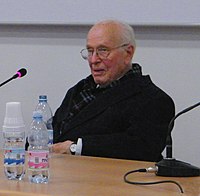
A birth–death model of ageing: from individual-based dynamics to evolutive differential inclusions
Sign Up to like & getrecommendations! Published in 2019 at "Journal of Mathematical Biology"
DOI: 10.1007/s00285-019-01382-z
Abstract: AbstractAgeing’s sensitivity to natural selection has long been discussed because of its apparent negative effect on an individual’s fitness. Thanks to the recently described (Smurf) 2-phase model of ageing (Tricoire and Rera in PLoS ONE… read more here.
Keywords: death; model ageing; model; birth death ... See more keywords

Transient analysis of a subcritical reactor core with a MOX-Fuel using the birth-and-death model
Sign Up to like & getrecommendations! Published in 2020 at "Nuclear Engineering and Technology"
DOI: 10.1016/j.net.2020.11.023
Abstract: Abstract The operation of the nuclear reactor requires accurate and fast methods and techniques for analysing its kinetics. These techniques become even more important when the MOX-fuel is used due to the lower value of… read more here.
Keywords: analysis; reactor core; mox fuel; birth death ... See more keywords

On the age of a randomly picked individual in a linear birth-and-death process
Sign Up to like & getrecommendations! Published in 2018 at "Journal of Applied Probability"
DOI: 10.1017/jpr.2018.7
Abstract: Abstract We consider the distribution of the age of an individual picked uniformly at random at some fixed time in a linear birth-and-death process. By exploiting a bijection between the birth-and-death tree and a contour… read more here.
Keywords: death; death process; birth death; linear birth ... See more keywords

Exponential convergence to a quasi-stationary distribution for birth–death processes with an entrance boundary at infinity
Sign Up to like & getrecommendations! Published in 2022 at "Journal of Applied Probability"
DOI: 10.1017/jpr.2021.100
Abstract: Abstract We study the quasi-stationary behavior of the birth–death process with an entrance boundary at infinity. We give by the h-transform an alternative and simpler proof for the exponential convergence of conditioned distributions to a… read more here.
Keywords: stationary distribution; boundary infinity; entrance boundary; birth death ... See more keywords

Simplicial epidemic model with birth and death.
Sign Up to like & getrecommendations! Published in 2022 at "Chaos"
DOI: 10.1063/5.0092489
Abstract: In this paper, we propose a simplicial susceptible-infected-susceptible (SIS) epidemic model with birth and death to describe epidemic spreading based on group interactions, accompanying with birth and death. The site-based evolutions are formulated by the… read more here.
Keywords: death; epidemic model; state; birth death ... See more keywords

Concerted and birth-and-death evolution of 26S ribosomal DNA in Camellia L.
Sign Up to like & getrecommendations! Published in 2020 at "Annals of botany"
DOI: 10.1093/aob/mcaa169
Abstract: BACKGROUND AND AIMS The Ribosomal DNA (rDNA) gene family, encoding ribosomal RNA (rRNA), has long be regarded as an archetypal example in illustrating the model of concerted evolution. However, controversy is arising, as rDNA within… read more here.
Keywords: evolution; concerted birth; death evolution; rdna ... See more keywords

Exact Bayesian inference for phylogenetic birth‐death models
Sign Up to like & getrecommendations! Published in 2018 at "Bioinformatics"
DOI: 10.1093/bioinformatics/bty337
Abstract: Motivation: Inferring the rates of change of a population from a reconstructed phylogeny of genetic sequences is a central problem in macro‐evolutionary biology, epidemiology and many other disciplines. A popular solution involves estimating the parameters… read more here.
Keywords: exact bayesian; death; bayesian inference; birth death ... See more keywords

Birth-and-Death Evolution of the Fatty Acyl-CoA Reductase (FAR) Gene Family and Diversification of Cuticular Hydrocarbon Synthesis in Drosophila
Sign Up to like & getrecommendations! Published in 2019 at "Genome Biology and Evolution"
DOI: 10.1093/gbe/evz094
Abstract: Abstract The birth-and-death evolutionary model proposes that some members of a multigene family are phylogenetically stable and persist as a single copy over time, whereas other members are phylogenetically unstable and undergo frequent duplication and… read more here.
Keywords: evolution; family; birth death; gene ... See more keywords

The birth and death of toxins with distinct functions: a case study in the sea anemone Nematostella.
Sign Up to like & getrecommendations! Published in 2019 at "Molecular biology and evolution"
DOI: 10.1093/molbev/msz132
Abstract: The cnidarian Nematostella vectensis has become an established lab model, providing unique opportunities for venom evolution research. The Nematostella venom system is multimodal: involving both nematocytes and ectodermal gland cells, which produce a toxin mixture… read more here.
Keywords: birth death; evolution; venom; nematostella ... See more keywords

Unifying Phylogenetic Birth-Death Models in Epidemiology and Macroevolution.
Sign Up to like & getrecommendations! Published in 2021 at "Systematic biology"
DOI: 10.1093/sysbio/syab049
Abstract: Birth-death stochastic processes are the foundation of many phylogenetic models and are widely used to make inferences about epidemiological and macroevolutionary dynamics. There are a large number of birth-death model variants that have been developed;… read more here.
Keywords: unifying phylogenetic; birth; epidemiology; birth death ... See more keywords

The Occurrence Birth–Death Process for Combined-Evidence Analysis in Macroevolution and Epidemiology
Sign Up to like & getrecommendations! Published in 2022 at "Systematic Biology"
DOI: 10.1093/sysbio/syac037
Abstract: Abstract Phylodynamic models generally aim at jointly inferring phylogenetic relationships, model parameters, and more recently, the number of lineages through time, based on molecular sequence data. In the fields of epidemiology and macroevolution, these models… read more here.
Keywords: macroevolution; epidemiology; birth death; number ... See more keywords